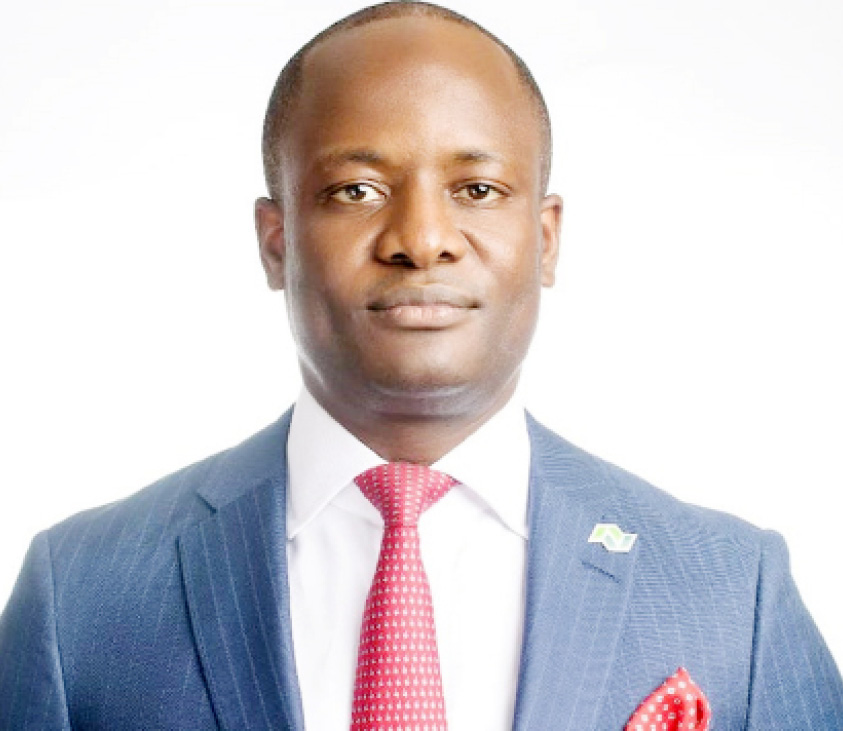Nigeria’s capital market development crossed a significant Rubicon on the eve of Easter on April 14, 2022, with the launch of the NGX Exchange Traded Derivatives (ETD) Market with Equity Index Futures.
Whilst it has taken so long, analysts believe it is better late than never, as the launch of the derivative product is aimed at increasing the depth and breadth of the Nigerian market, which many say is too shallow for the size of the economy.
With the launch of the derivative market, the NGX listed two Equity Index Futures Contracts, the NGX 30 Index Futures and NGX Pension Index Futures, the NGX noted it would roll out more derivative products to diversify the offerings in the near future, as it hopes to leverage this new asset class as an opportunity for portfolio managers to diversify their portfolios. Unlike Exchange Traded Funds, the exchange traded derivatives are imaginary portfolios, whose pricing and performance are contingent on the underlying assets.
NGX explained that ETDs are standardised, highly regulated, and transparent financial contracts listed and traded on a securities exchange and guaranteed against default through the clearing house of the derivatives exchange.
NGX further explains that the ETDs market will complement existing asset classes, provide investors and other market players with the necessary tools for tactical asset allocation, as well as improve risk and cost management for effective portfolio management. It will further enhance the participation of domestic and international investors in Nigeria’s financial markets, which will positively deepen the market and support the drive towards leveraging the capital market as a lever for sustainable economic growth.
This development marked a step towards the Exchange’s dream of expanded asset classes traded on its platform, with the objective of increasing liquidity and widening investment opportunities for participants. With the launch of derivative offerings, investors now possess more instruments for risk management in their investment strategy toolkit. Until now, trading on the local bourse has been limited to three classes of assets: equities, fixed-income securities (typically bonds; corporate and government), and Exchange Traded Funds. Equities have been known to dominate the market capitalization and indeed account for as much as 70 percent of the value of the market capitalisation and over 95% of trading activities. The introduction of derivatives is expected to realign this imbalance.
Prior to its demutualisation, the Exchange listed a Gold ETF, NewGold, which is an example of a commodity Exchange Traded Fund. The question some retail investors keep asking is how does a commodity ETF help an investor, said Isaac Olorunlogbon, the CEO of Deep Trust Capital Limited, who noted, “Investors who hold ETFs can benefit from price increases on the underlying assets held by the Fund that tracks the Exchange index or in the underlying commodities held by the Fund, in the case of commodities EFTs like the NewGold. As gold prices rise, Newgold ETFs can benefit from their exposure to Gold through their holdings in the ETF. Interestingly, the investors in the case of Newgold have also over time benefited from the currency hedge, since gold is priced in foreign currency.”
So, though the investors in commodity ETFs do not hold the commodities directly. By tracking the movement of such commodities through their holdings in Funds invested in the commodities, the investors have an opportunity to gain from such positive price movements.
The Chief Executive Officer of the NGX, Mr Temi Popoola, commended the efforts of stakeholders who have successfully driven the completion of the Derivatives Market after diligent preparations in the past eight years. “I would like to specially acknowledge the work that was done under the previous management of the Exchange, led by Mr Oscar Onyema, whose contributions have formed the foundation of our present gains and accomplishments made manifest through the launch of NGX ETDs market. NGX remains committed to building an Exchange that can cater to the increasingly sophisticated needs of domestic and foreign investors.
“A strong pillar in our strategy is to enhance liquidity and expand market capitalisation to the end that we create value for stakeholders, and the introduction of ETDs is a critical step in the right direction. The platform will play an essential role in broadening and deepening the market, adding new impetus to NGX’s leading position as Africa’s preferred exchange hub.”
NGX added that to promote clearing efficiency, stability, and confidence, the Exchange has collaborated with a premier Central Counterparty (CCP) in Nigeria, NG Clearing Limited, to provide the clearing infrastructure for NGX Derivatives Market and its clearing members – Access Bank and Zenith Bank. The ETDs Market will commence with trading activities by the first three Trading License Holders – Cardinalstone Securities Limited, Meristem Securities Limited and APT Securities and Funds Limited – who have been cleared by NGX Regulation Limited to facilitate transactions on behalf of investors on NGX Derivatives Market.
The reference to Onyema in the development of financial products on the Nigerian Exchange is quite significant. On April 4, 2011, Onyema assumed the position of the Chief Executive of the then Nigerian Stock Exchange, following the resolution of the crisis that had engulfed the Exchange at the time. That day, Onyema opened trading on the Exchange by ringing the bell.
“I was not looking at Nigeria as a place where I wanted to come to, but when the opportunity presented itself, I thought it gave me a unique opportunity to build a legacy of change, a legacy of transformation, a legacy that positively affects the lives of millions of Nigerian investors,” Onyema said in an interview with this reporter on the 23rd floor of the Nigerian Stock Exchange building in Lagos on November 27, 2013.
When Onyema took over the leadership of the Nigerian Stock Exchange (now known as the Nigerian Exchange Limited) in 2011, the market was in deep need of guidance and leadership, and Onyema was ready to provide that. As he puts it, “there is really nothing new under the sun. You just have to replicate everything and make sure that whatever you are doing is very suitable for the local market”.
One key area with a yawning need was in product introduction to deepen the market.
“We need to introduce Derivatives – Options and Futures, so that we can benefit from the Network Effect,” Onyema said in the 2013 interview “These will help investors manage risks associated with investing in financial securities. So if you know you are trading on a company, say Nigerian Breweries and you can take out an Option contract on it to protect your downside, you would take larger positions in the company.”
The benefit will come to a typical investor this way: people’s expectations on how the market or a particular security will perform in the future will always differ and as such there are hardly any two persons who will see a security moving in exactly the same way. This is the basis of option contracts, which creates room for mutual benefits for both parties. So, in the example given by Onyema, the investor who holds Nigerian Breweries shares will be willing to enter into an Option contract with another investor who expects a higher rise in the price of the stock than his own.
If you know that you can take a Futures contract on foreign exchange on the Exchange, you are more likely to be confident in doing your business if your business involves importing or exporting products because you can hedge your currency risk.
So, there are a lot of network effects that the exchange can derive from having the five products and all of that will drive the march towards the one trillion dollars’ market capitalisation.
While pundits think the market needs a lot of education to effectively create liquidity from the derivative offerings, especially as some say it portends higher risk, compared to the plain vanilla cash equities. However, the NGX leadership believes this may be the silver bullet that would take the market capitalisation from barely USD61 billion to Oscar Onyema’s USD1 trillion target.

 Join Daily Trust WhatsApp Community For Quick Access To News and Happenings Around You.
Join Daily Trust WhatsApp Community For Quick Access To News and Happenings Around You.


